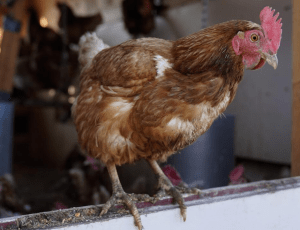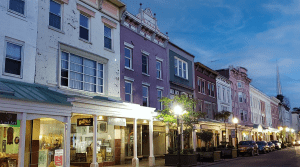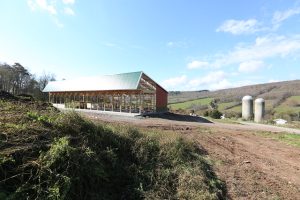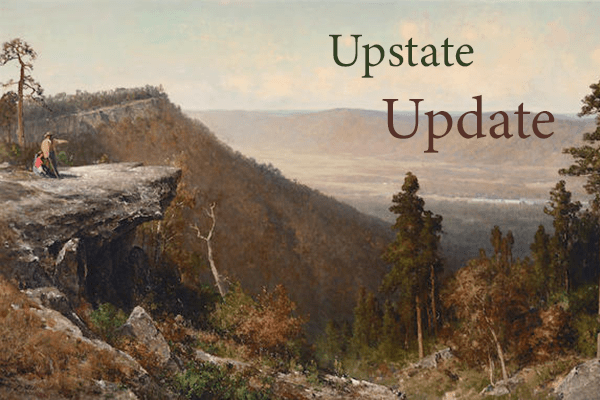|
RCBJ-Audible (Listen For Free)
|
Bird Flu Kills 50 Chickens & Ducks On Ulster County Farm; No Known Human Cases Identified in New York State
 A positive case of highly pathogenic avian influenza, also known as H5N1, or “bird flu,” at a farm that housed approximately 50 chickens and ducks has killed all but two birds on the farm. The NYS Department of Agriculture and Markets recommended euthanizing the remaining two birds in order to prevent further spread. Human contact with the birds was limited to the owners and a veterinarian, who will remain under surveillance by the Ulster County Department of Health for symptoms.
A positive case of highly pathogenic avian influenza, also known as H5N1, or “bird flu,” at a farm that housed approximately 50 chickens and ducks has killed all but two birds on the farm. The NYS Department of Agriculture and Markets recommended euthanizing the remaining two birds in order to prevent further spread. Human contact with the birds was limited to the owners and a veterinarian, who will remain under surveillance by the Ulster County Department of Health for symptoms.
An outbreak of avian influenza began in the U.S. in early 2024 and has primarily affected wild birds, farmed birds, and dairy cows. Contact with an infected bird puts individuals at risk of exposure. Workers on dairy and poultry farms and culling operations are at highest risk.
“People working with poultry should consider wearing personal protective equipment (PPE) when working in close proximity to the birds,” said Ulster County Public Health Director Eve Walter. “All residents should avoid handling a wild or domestic sick or dead bird.”
No known human case has been identified in New York State. There are also no known cases involving domestic pets, but it’s advisable to keep pets away from dead birds or animals.
Any birds demonstrating severe illness or die-offs in backyard poultry should be reported to the NYS Department of Agriculture and Markets Division of Animal Industry at 518-457-3502.
Dead wild birds should be reported to the New York State Department of Environmental Conservation at: https://dec.ny.gov/nature/wildlife-health/reporting-dead-wildlife or https://dec.ny.gov/nature/wildlife-health/animal-diseases
Aging Pike Plan Canopies Approved For Demolition In Uptown Kingston
 Love them or hate them, the Pike Plan canopies along Wall and North Front streets in Kingston’s Uptown district are coming down, perhaps as soon as April, after Kingston’s Common Council voted to support a demolition plan championed by Mayor Steve Noble.
Love them or hate them, the Pike Plan canopies along Wall and North Front streets in Kingston’s Uptown district are coming down, perhaps as soon as April, after Kingston’s Common Council voted to support a demolition plan championed by Mayor Steve Noble.
The canopies are both a unique fixture of the Uptown District and a remnant of Urban Renewal Plans that were meant to bolster Uptown’s ability to attract foot traffic away from suburban shopping malls and retail strip centers.
The colonial-inspired design from the mid-1970s was part of Urban Renewal Plans that forever altered Kingston, especially in the city’s Rondout area where demolition left vacant lots that remain undeveloped to date.
Efforts to stall or derail the removal of the canopies failed to gain traction in court actions filed by local property owner William Gottlieb Real Estate, though an appeal was recently filed challenging the denial of a request for a preliminary injunction.
In December, the State Historic Preservation Office ruled that the canopies are “eligible” for listing on the state and national registers of historic places.
“The Pike Plan, as it partially stands today, was not well constructed and has come to the end of its useful life,” Noble said. “As a City, we have been working toward reversing the harms of Urban Renewal, and I believe restoring our beautiful historic buildings will be a great step in the right direction, and returning the facades to their original grandeur will bolster the economic vitality of Uptown Kingston.”
The estimated cost to demolish the canopies is $1.2 million. According to Noble, removal of the canopies is the best option for the Uptown business district and city taxpayers.
NYC DEP Commits $228 Million to Help Protect Forests, Support Area Farms and Agriculture Through Local Partnership
 The New York City Department of Environmental Protection (DEP) announced a $228 million commitment to farm and forest landowners in the watershed region to protect water quality while supporting the economic viability of agriculture and forestry in the area.
The New York City Department of Environmental Protection (DEP) announced a $228 million commitment to farm and forest landowners in the watershed region to protect water quality while supporting the economic viability of agriculture and forestry in the area.
The DEP partners with the Watershed Agricultural Council (WAC), a local not-for-profit 501(c)(3) organization, to ensure watershed protection from farm and forest runoff within the New York City Watershed.
Three new contract between the DEP and WAC valued at $228 million (over 10 years) have been signed to help ensure the use of best management practices—such as nutrient management plans, manure storage, and cover crops—and preservation of farms and forests from development through WAC-purchased conservation easements.
The NYC DEP will also pay for the design of a new Watershed Agricultural Council headquarters and fund 80 full-time staff to provide stable and uninterrupted funding to the organization.
The DEP paid $165 million in local village, town, city, county and school taxes in 2024 across nine Hudson Valley and Catskill counties covering the water supply system serving half of the State’s population. The DEP remains top taxpayer in Ulster, Putnam, Schoharie and Delaware counties; and the second highest taxpayer in Westchester in 2024.
















